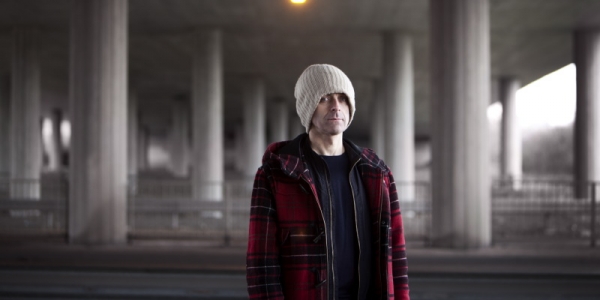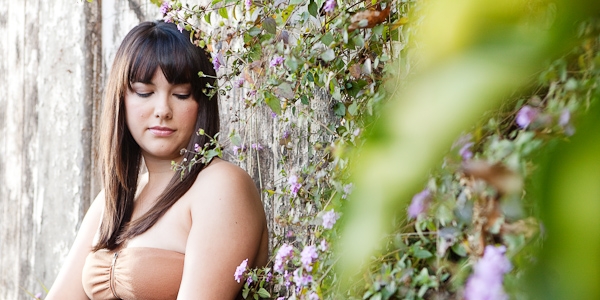Hyde is in the midst of whirlwind preparations for the first run of Edgeland’s live performances when we speak, and he’s never been happier, as he tells me. “I’ve never been nervous playing live – I don’t mean that in any kind of arrogant way, it’s just that since I was little, the stage seems like the calmest place in the world to be,” he says, with a laugh that proves to be free-flowing during the interview to come. “We did a little try-out show in a club in Brighton, a week or so ago and loved it – just loved it. The new band has been great – lovely people, great players and I feel really quite humbled to be amongst them to be honest. Getting excited! I think sometimes the scariest situations can be when you’re playing to a very small audience, not many people – those can often be the most intimidating. It’s almost the other way around!”
It’s been a fiendishly busy few years for Hyde since his last appearance in Australia in 2010 with Underworld partner Rick Smith for a string of festival dates across the country – highlights including his first solo painting exhibition, soundtracking Danny Boyle’s production of Frankenstein, collaborative efforts with everybody from High Contrast to Tiesto, and, of course, last year’s career-highlight gig as music directors of the 2012 Olympic Games. It’s a seriously enviable position to be in, rubbing shoulders with all manner of bright, creative minds from all walks of the creative industry – Hyde explains it as a necessity for him. “Back at art school, I loved talking with other artists in the canteen and in the bar afterwards – all these people from different disciplines,” he says. “I learned so much from conversations with other artists about their work, and when we formed Tomato and had that collective of artists and musicians, it just felt like the right place to be. It’s how I like to work! Meeting other people and hearing their point of view about what it is I do and what it is they do. Even when I’m working on a solo painting exhibition, I’ll send photos to my partner in Melbourne – I’m basically on a line to Melbourne three times a week, anyway – and he’s kind of my art mentor, so even with something that looks solo like a painting exhibition, I’m always getting feedback from other artists – what do you think? What’s your point of view? What do you see when you see this? Otherwise I work in isolation and I’m not interested.”
It’s a side to his work as a musician that often goes unacknowledged: whilst notorious for their ability to set dancefloors alight and pulses racing with stadium-shaking anthems such as the definitive Born Slippy (recently nominated as Mixmag’s fourth greatest dance music song of all time), Underworld’s penchant for less dancefloor-oriented material is one that remains often undervalued – and the desire to explore this territory more fully proves refreshing for those who have followed the trajectory of Underworld’s careers since the beginning, as well as for Hyde himself. “Standing on the Sydney Opera House stage a few years ago with Brian Eno and Pure Scenius – I thought, this is where I want to be, performing to a sit-down audience and to be performing sit-down music in between playing to big arenas,” he says. “There’s always been an element of that in our music on our albums, but we’ve never performed it live,” he continues. “In the early days, we could, but now, Underworld is more about the those big stadiums. I felt that that was a shame, that we weren’t able to explore the other side of Underworld, so I set out to work on a project that was heavily inspired by the other Underworld and having found Leo, with Brian’s encouragement we made a record that Rick and I used to make records: in a studio improvising.”
The upcoming release Edgeland will no doubt be a refreshing listen for those who have followed Hyde’s career for the 20 years in which he’s been writing music. Renowned for his adoration for more traditional instrumentation and a flair for incorporating this work into the meticulously-crafted soundscapes of techno and house, Edgeland is his opportunity to explore his more traditional training in music. “There’s always been a kind of roughness to the things that I’ve done, and I wanted to explore that,” he explains. “The album was put together in a bedroom in East London – we’d go down there, and there’s a good cafe down the road where we’d go there for lunch and come back and clock on each day. I didn’t want it to be polished or overly worked on – in a period of eight days, we wrote about 60 songs, and this album took about six weeks to make. An Underworld record will take three years to make, traditionally, and I felt things could happen a lot quicker with the right people and that’s one of the things I wanted to explore.”
Hyde’s lengthy love-affair with the poetry of large cities is a well-documented one, both in interview and on the voluminous back catalogue of records he has under his belt with Underworld. Edgeland, however, is a move not away from the city but outwards, and the music has evolved in kind. “The music has evolved because of the nature of the city – certainly my words have been centred on explorations of inner-cities. With this one, I didn’t want to go there, I wanted to be further out on the edge of the city – that place where the city crumbles into the countryside, where the real outsider tribes live, the people that refuse to be part of the countryside but also reject the mythology of city living. Where architecture and hand painted signs and the boarded up streets the spirit of positivity exists every day in spite of decline of the environment. What I noticed – as I was travelling in and out of the city (I live outside of the city now), there was this ring I kept returning to, this ring of decay that I found very beautiful. I’ve always found decay to be very beautiful! The poetry of the streets. This is a new kind of decay, that I felt a real affinity with. People were telling me – why don’t you go here, why don’t you go there? I was literally handing my day over to people and saying, where shall I go today? There’s a cafe here, a road which goes down the railway there, the disused docks down by the river. I’d find people to talk to and write about.”
As for the upcoming shows in Australia: those of you who will have caught Underworld’s juggernaut live performances in the past, whether it be in the Boiler Room at one famed Big Day out or more recently on 2010’s Winter Sound System tour will no doubt have treasured memories of the thrillingly-freeform and wildly unpredictable nature of their live shows. Not any longer, Hyde says – but the sense of adventurousness when it comes to the live performance remains. “This is quite a different group! It’s a four-piece bands, two areas of electronics, keyboards, laptops, a bass player playing electronics, me playing guitars and vocals, members of Peter and Brian’s bands,” he says. “I can’t jump around! I’ve got guitars and pedal boards! It’s quite funny, really. It’s also really refreshing. In a few weeks time after that I’ll go and play an arena with Underworld and I’m running around all over the place because that’s the nature of the music and I’m really enjoying this, being rooted to the spot with my microphone and guitar and letting the music dance. having said that: we do the album and when we’re done, we revisit some of my favourite Underworld tunes, but with the voice of this band, and that’s an opportunity to express myself differently, too. Inspiring.”
BY MIKI MCLAY

